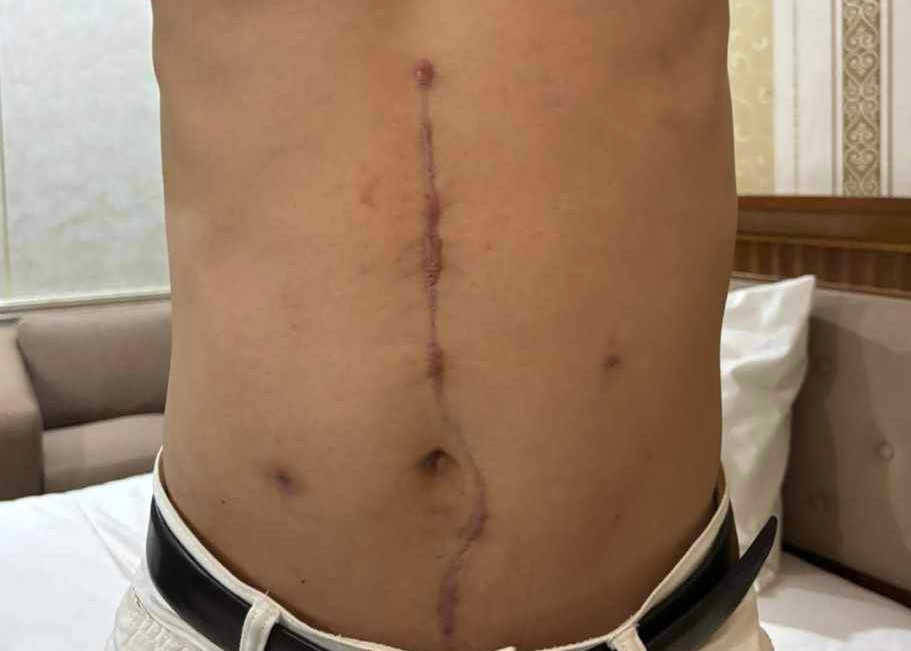
Working for Rong Xanh (Blue Dragon) for nearly a decade, Nguyen Quang Anh has heard many heartbreaking stories about victims of human trafficking. 'Some of them, when returning to the organization's headquarters, still have severe injuries from being beaten or injured while trying to run away.
Others have long incisions on their abdomen and say that were disemboweled and their kidneys taken away for sale. One person appeared at the headquarters with a manual book in hands which showed 20 methods to conduct online scams. Some people tried to contact Rong Xanh and ask for help, but they were later killed before they could be found.
According to Anh, many people have been tricked into crossing border gates to look for ‘easy jobs with high pay’ which they hoped would help them have a new life. But contrary to their expectations, they were forced to work as good-time girls and trick other people.
There is no exact figure about the number of victims. A few people have been rescued, but many others are still being kept in the dens of gangsters. Many are trying to send messages and call social workers from Rong Xanh to ask for help.
Many victims, after being rescued, said they were told to cross the border to look for jobs with good working conditions and high pay which cannot be found in Vietnam. But after landing in a foreign land, they became disillusioned.
On the first working days, they were put under loose control and were allowed to use mobile phones and social networks to contact family members in Vietnam.
But after a certain time, if they were not efficient in their work, i.e. if they had not swindled many people out of money, they have to borrow money to cover daily basic needs. The amount of money they were borrowing increased rapidly, while they could not use mobile phones and computers.
The gangsters then told them that if they wanted to come back, they needed to tell family members to remit money for a ransom. However, the majority were from poor families living in remote and mountainous areas, and did not have money to get their relatives back.
In fact, no one could say for sure that, after remitting money, their relatives would have been released. The victims were often sold to third parties.
“Since the trafficked people still used mobile phones and computers, many contacted us and asked for help to return them to Vietnam. In many cases, we work with agencies to rescue them. Since most are poor, Rong Xanh will give support and help them reunite with family members,” Anh said.
“The leaders of human trafficking rings are gangsters who are ready to use guns,” Anh said. “Regarding the ransom, this solution is not encouraged by Rong Xanh as it will create a bad precedent."
The social workers at Rong Anh, when receiving calls for help, advise victims to keep calm and not to use mobile phones, so that the gangsters do not view them with suspicion. When control becomes lax, the opportunity to escape will be higher.
Anh said there are two cases he remembers because of the horror and pain they suffered. “One of them almost had one kidney taken away. But in the last minute, his kidney was found to be not compatible with the recipient’s conditions, so the kidney was protected,” Anh said.
“When he came to see us, we could see a long incision on his stomach,” he recalled.
The second victim was a woman who was brought to Myanmar where she had to work as a prostitute. She managed to contact Rong Xanh and talk about her situation. When the police conducted a major raid, they rescued 30-40 individuals and brought them to Vietnam. When Rong Xanh officers asked the police about the girl, they were told that she had died.
“The policemen gave us the photos of the victim and told us how she died,” Anh said.
Nguyen Thao